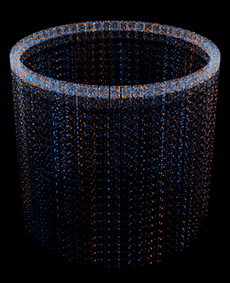About
Professor Lucini is a current Royal Society Wolfson Merit Awardee with interests spanning across Mathematics, Physics and Computer Science. In his research, he combines the use of High-Performance Computing and Advanced Mathematical Algorithms in order to address open problems in Particle Physics, such as the description of fundamental interactions beyond the currently known four forces of nature in order to explain the inner nature of the Higgs boson and the existence of Dark Matter.
A Ph.D. graduate from Scuola Normale Superiore (Pisa, Italy), Professor Lucini joined Swansea University in 2005, after having been a Postdoctoral Fellow at Oxford University (2000 – 2003) and at ETH Zurich (2003 – 2005). In 2011, he became Professor at Swansea, where he has been the Director of the Mathematics Department from 2015 to 2020. In 2018, he was elected Fellow of the Learned Society of Wales. In 2020 he has been awarded a Leverhulme Research Fellowship to investigate Machine Learning applications in Statistical Mechanics and in Quantum Field Theory.
Professor Lucini is the Director of the Swansea Academy of Advanced Computing, the Technical Director of the UKRI CDT in Artificial Intelligence, Machine Learning and Advanced Computing and a member of the Technical Directorate of the STFC DiRAC High-Performance Computing facility.


